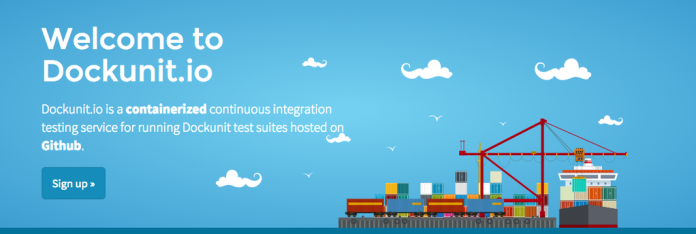Dockunit.io has officially launched in beta.
Dockunit.io lets you run containerized continuous integration tests with the Dockunit tool. With Dockunit.io you can test your software (in any programming language) in environments (containers) you define. You can configure your software to be tested across a number of environments ensuring your software just works for people no matter how their system is configured. Each push and pull request to your Github repository will show a status of whether the tests passed or failed. With Dockunit.io you can more effectively deliver bug-free, quality assured code to your clients and the open source community.
Travis CI is the most popular continuous integration service. Why should you use Dockunit over Travis CI:
- With Travis, you are stuck with the versions of each programming language and service that they want to support. For example, these are the supported versions of Node on Travis CI (as of today Travis isn’t supporting Node 4.1.0). With Dockunit you define your environments and therefore your programming language and service versions. No need to worry about Travis ending support for an older version you still want to test in.
- Travis CI just started supporting Docker but the new system is cumbersome, difficult to use, and somewhat of an after thought. Dockunit.io is built for Docker.
- Dockunit is meant to be run locally first so you don’t have to push changes to Github just to test a change in some obscure language version. This results in a more organized project and project workflow for your team. It is extremely difficult to test Travis locally.
Containerized integration testing is the future. Right now Dockunit.io is completely free. Give it a try on your project. Feedback is welcome 🙂
